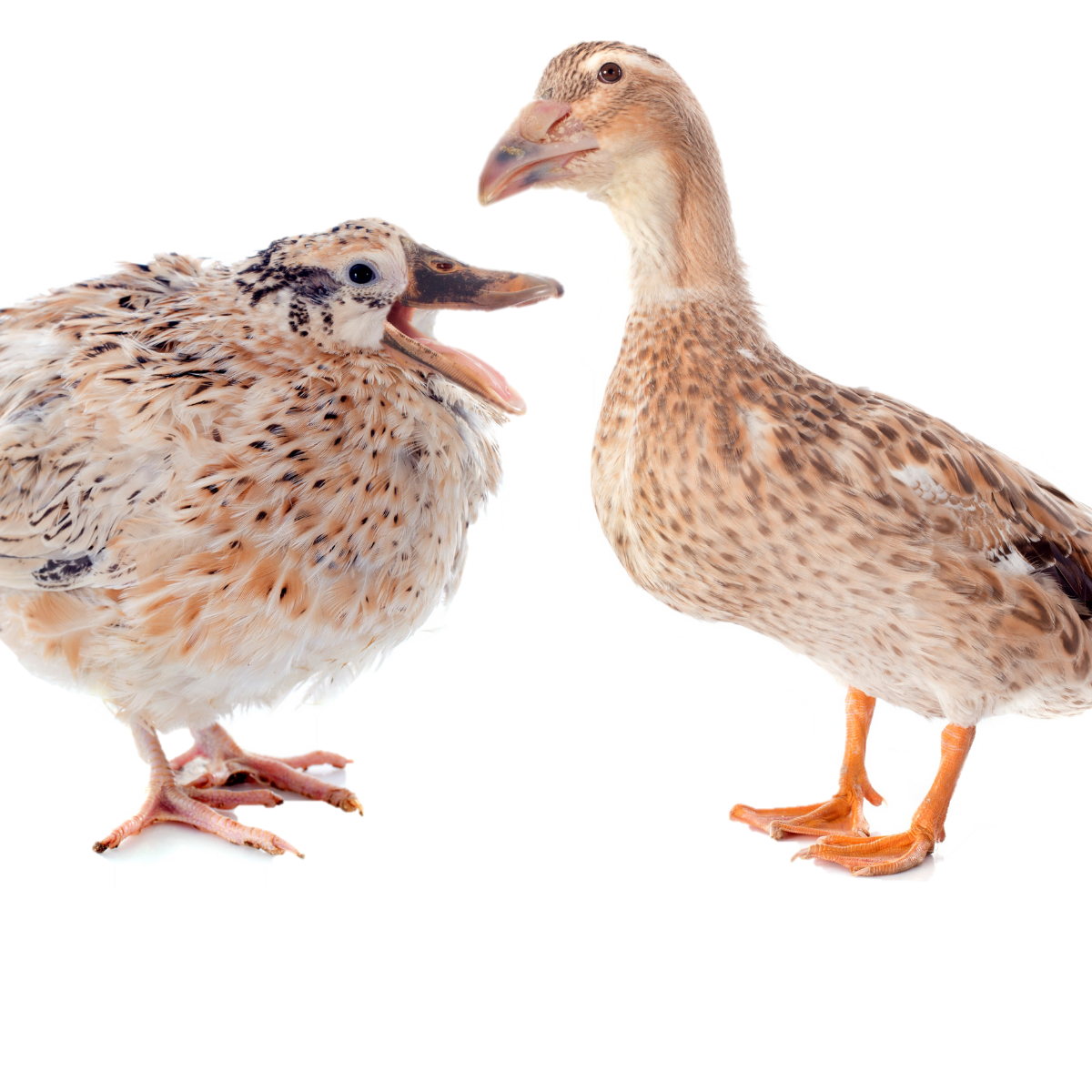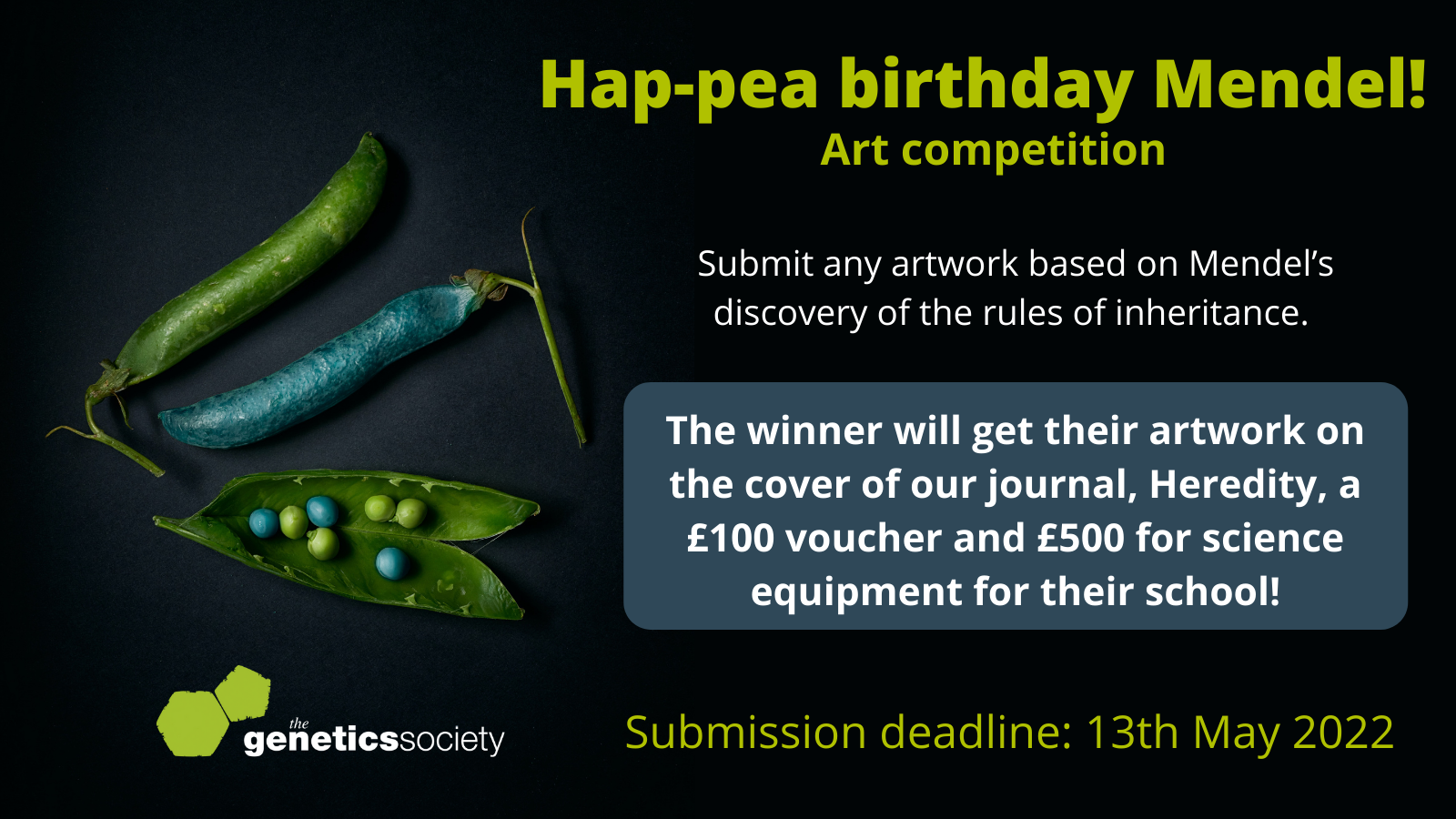S5.07 Face to face: The viruses that made us human
Hello, and welcome to Genetics Unzipped - the Genetics Society podcast, with me, Dr Kat Arney. In this episode we’re looking at the monkey in the mirror, investigating how flipped genetic switches and long-dead viruses make all the difference between our human faces and those of our closest primate relatives.
Artist’s impression of what an adult ‘quck’ and ‘duail’ might look like
The Monkey in the Mirror
It’s easy to see that there is variation in human faces, and that variation extends to the faces of animals like fish, geckos and chimps. Dr Kat Arney uncovers the surprising origins of how our human faces came to be, and the unlikely experiments that revealed their secrets. Click here to read the whole story…
Hap-pea birthday Mendel
We interrupt this podcast to bring you news of a fabulous art competition for kids.
To celebrate the 200th anniversary of the birthday of the great-great-grandfather of genetics, Gregor Mendel, The Genetics Society is inviting primary and secondary schoolchildren in the UK to submit artwork based on Mendel’s discovery of the rules of inheritance!
It can be a drawing, collage, sculpture, or any other creative work. The best artwork will be featured on the cover of a special issue of Heredity, the official journal of the Genetics Society. And the winning student will get a £100 voucher and their school will get £500 towards science equipment.
Students from primary and secondary schools can take part by submitting a high-resolution image of the artwork, together with the artist’s name, age, materials used and school’s name to theteam@genetics.org.uk with the subject line: ‘Hap-pea Birthday Mendel’ by the 13th May. Each student can submit up to three pieces of artwork, and please be aware that this competition is only for children in the UK. You can find out more by going to https://genetics.org.uk/hap-pea-birthday-mendel/
That’s all for now. If you’d like to discover similar stories then listen to Dogology, that’s episode 4 of our last series of Genetics Unzipped, where Georgia Mills talks to Jeff Schoenebeck from the Roslin Institute at the University of Edinburgh about how genetic variations determine how boopable your dog’s snoot is. And there’s also episode 17, Back to The Beginning, where we explore the origins of life and other tales of how viruses have been co-opted by evolution to create new genes.
And if you’d like to take a deeper dive into the science and the stories of how our genes work, the check out my first book, Herding Hemingways’ Cats, available wherever books are sold in paperback, audiobook and ebook.
We’ll be back next time taking a look at science behind the recent headlines claiming that a genetically modified pig’s heart had been transplanted into a human. We’ll be asking what happened, how it works, and why it’s even necessary.
For more information about this podcast including show notes, transcripts, links, references, music credits and everything else head over to geneticsunzipped.com You can find us on Twitter @geneticsunzip and please do take a moment to rate and review us on Apple podcasts - it really makes a difference and helps more people discover the show.
This episode of Genetics Unzipped was written and presented Kat Arney. It is produced by First Create the Media for The Genetics Society - one of the oldest learned societies in the world dedicated to supporting and promoting the research, teaching and application of genetics. You can find out more and apply to join at genetics.org.uk. Our theme music was composed by Dan Pollard, and the logo was designed by James Mayall, and audio production was by Sally Le Page. Thanks for listening, and until next time, goodbye.
Music licensed from Epidemic Sound
References and further reading:
Herding Hemingway’s Cats: Understanding how our genes work – Kat Arney (2016) Bloomsbury Sigma
The Cellular and Molecular Origins of Beak Morphology, RA Schneider and J Helms, Science (2003) 299; 565-568 doi: 10.1126/science.1077827
Enhancer Divergence and cis-Regulatory Evolution in the Human and Chimp Neural Crest, SL Prescott et al, Cell (2015) 163; 68-83
Origins and evolutionary consequences of ancient endogenous retroviruses, WE Johnson. Nat Rev Microbiol (2019) 17:355-370. doi: 10.1038/s41579-019-0189-2






